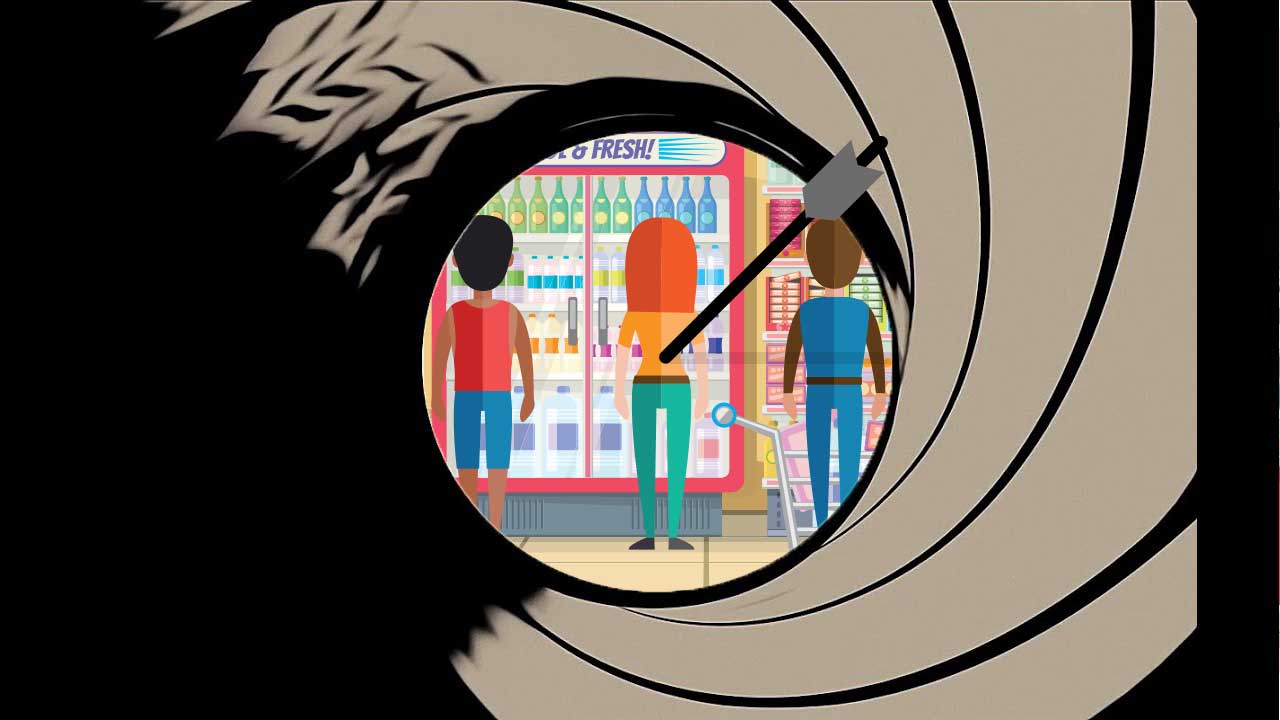
The internet, the information super highway that promised so much, is becoming little more than a bastion of surveillance and capital. Every click is followed, stored and added to the rest of our digital footprints; card spends, phone calls, whatever it takes to get a full picture of a person to find out what they might buy. At least when we log off and go into bricks and mortar shops we can relax from the stalky algorithms. Or can we?
A new technology is being phased out in the US where shoppers are spied on by AI cameras to guess shoppers age, gender and mood as they browse the store. The intent is to use the information to show targeted real-time ads on in-store video screens.
Dieting, but lusting after a big tub of triple-choc ice cream? Good luck with the will power when ads for that delicious craving follow you all over the salad isle. Or perhaps you’re in a particularly good mood? Why not buy some champagne to celebrate? It’s on offer. You can be reminded in every little screen as you go about your shopping, but what if you have a drink problem and are trying to avoid alcohol?
At the National Retail Federation trade show in New York earlier this year, a ‘smart shelf’ on display by Mood Media tried to detect “happiness” or “fear” as people stood in front of it — information a store could use to gauge reaction to a product on the shelf or an ad on a screen. Cineplex Digital Media showed off video screens that can be placed in malls or bus stops and try to tell if someone is wearing glasses or sporting a beard, which in turn can be used to sell ads for new frames or razors.
Kroger has 2,800 supermarkets across the US and is testing AI cameras now in two of them. If it goes well, they’ll do a full company roll out. The cameras are hidden in the pricing sign above shelves. Video screens attached to the shelves can play ads and show discounts. The chain said cameras guess a shopper’s age and sex but the information is anonymous and the data is not being stored.
For now, the cameras are in just a handful of stores, but with the roll out of 5G and buzz about the internet of things, will this be our future? Why not just tattoo our heads with barcodes now to save the trouble? Needless to say, privacy concerns have been raised. Privacy experts warn that even if the information being collected is anonymous, it can still be used in an intrusive way. Advocates for the technology say it helps bricks and mortar stores compete with their online data harvesting competitors.
No matter what your opinion, technology for the purposes of surveillance capitalism is growing at a frightening rate and it’s a trend that will only continue. Once the technology exists, there is always a very real threat of it being used for more sinister purposes. The only way to resist is to cut off your data supply where possible. If you see these cameras coming to a store near you, wear sunglasses as you browse the shelves.
When online, where the real danger still lurks, you should browse in private with Firefox, use DuckDuckGo as your search engine, and get2Clouds to send and receive messages and files of any size, and to encrypt your data in the cloud.
